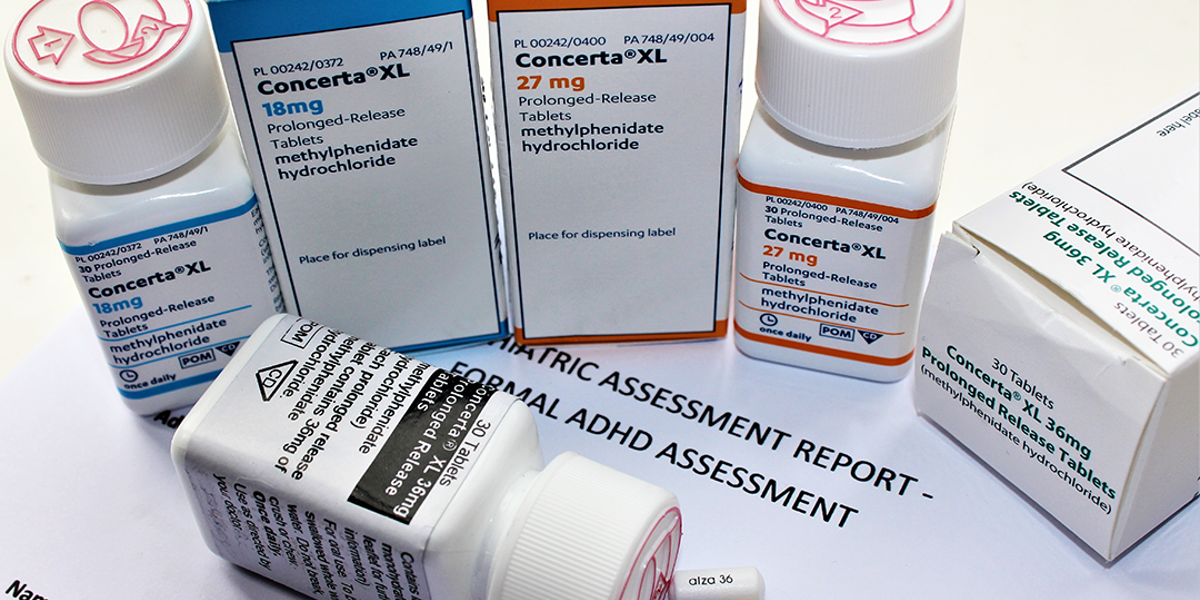ADHD medication shortage: Important information for parents
- Neurodiversity

Photograph of Concerta XL medication on top of paper stating 'Paediatric assessment report - Formal ADHD assessment'.
There is currently a national shortage of ADHD medications. This shortage began in September 2023. This is affecting both adults and children across the country.
The shortage is due to an increase in global demand and manufacturing problems. There have been some improvements, but many medications are still affected by the shortages.
It is unclear when these issues will be resolved.
Key Points:
-
The ADHD medication shortage is ongoing and could affect medications and strengths at any time.
-
If your child or young person is already on medication, continue with your current prescription unless advised to change by your doctor.
-
New patients may face delays in starting medication due to supply issues.
-
The situation can change quickly.
Medications affected by the shortage
The availability of ADHD medications is unpredictable. Any medication can be affected at any time. Different types, strengths, and brands may be out of stock for varying periods.
At the time of posting this article:
- Methylphenidate is in short supply. The brands and strengths affected changes.
- Lisdexamfetamine (Elvase®) is in short supply. Some strengths may be unavailable for months.
- Guanfacine (Intuniv®) is currently available
- Atomoxetine is currently available.
The situation is unstable. The supplies can change with little notice. We cannot say exactly when the shortages will end. We are monitoring the situation closely.
What to do if your child or young person is about to start ADHD medication
Methylphenidate is typically the first option for ADHD treatment. This is a medication affected by the shortages. Due to this, we are delaying appointments to start new medication. We will resume these appointments as soon as a reliable supply of medication is available.
How the shortages will affect children and young people already on ADHD medication
If your child or young person is currently on ADHD medication, we strongly recommend they keep taking their medication. Unless there are exceptional reasons to switch.
Some medications have different brand names but have the same effect. Patients can switch between these brands as they will work the same. Where clinically appropriate, clinicians may issue generic prescriptions for these medicines. This allows pharmacies to dispense whichever brand is available.
Changing medications may lead to more complications and difficulties. Some other medications may only be available for a short time and go out of stock unexpectedly.
Recommendations for managing the shortage
- Order the medication early. Order your child or young person's prescription in advance. This can help avoid you running out of their medication.
- Contact different pharmacies. If your usual pharmacy doesn’t have your medication, try contacting others. Prescriptions can be transferred electronically between pharmacies. We recommend trying both independent pharmacies and large chains, as their stock availability may vary. To find your local pharmacies, visit NHS Find a Pharmacy.
Unfortunately, we are unable to contact pharmacies on your behalf to locate stock.
What to do if you can't find stock
Guanfacine (Intuiniv®)
At the time of writing, guanfacine (Intuiniv®) is available.
Guanfacine should not be stopped or reduced unless advised by the specialist. The specialist team will contact you to provide advice on what to do should there be a supply problem in future. Please order the medication in advance before running out.
Methylphenidate, lisdexamfetamine and atomoxetine
Generally, it's safe to stop methylphenidate, lisdexamfetamine, and atomoxetine. Your child or young person will not need to slowly reduce their dose.
If you're unable to get these medications, there are some strategies to help your child to manage their ADHD:
Do not buy medications online or abroad. Medications bought from the internet or other countries may be expired, fake or unsafe.
Schools and educational settings
If your child uses ADHD medication at school, inform the school's Special Educational Needs (SEN) team about shortages. This will help them to support your child's wellbeing and continuity of care.
Communication and planning can help ensure your child or young person's wellbeing and continuity of care, despite the medication shortages.
- Make a plan with your child's teacher and the school's SEN team. Talk about how they can help support your child or young person when your child or young person has not taken their ADHD medication. If you or the SEN team would like advice and support please contact your child’s CAMHS team.
- Consider sharing medication between home and school. Due to the shortages it may not be possible to have seperate supplies for home and school.
- Agree with the school who should receive the medication at the start of the school day and who should return it to the parent at the end of the school day.
- Request the next ADHD medication prescription when there is 14 days left. This allows time for the prescription to be processed by the GP or specialist team. It also allows time for the pharmacy to source the medication.
- If you are involved with social care, inform your social worker or family support worker about the ADHD medication shortages.
